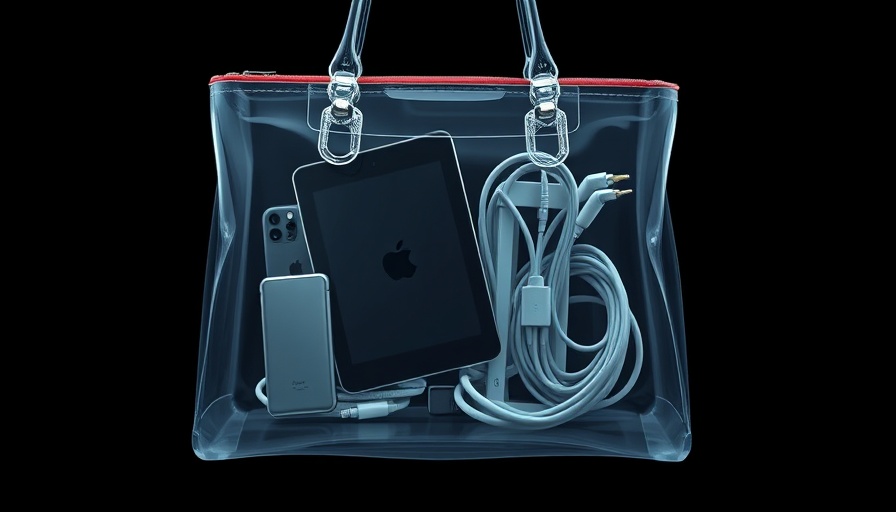
Protecting Your Digital Privacy at U.S. Borders
Crossing into the United States today poses significant risks to digital privacy. With the enforcement of stricter scrutiny by U.S. Customs and Border Protection (CBP), travelers must take steps to safeguard their data. Increasing reports of foreign visitors being detained or denied entry following electronic device searches underscore this reality. Individuals are finding themselves in troubling situations when their devices reveal opinions or data that may be scrutinized unfairly.
Crucial Preparation to Safeguard Your Data
Experts like security researcher Ryan Lackey recommend that travelers adopt a cautious approach similar to those heading to high-risk countries. This involves using travel-specific devices that are wiped clean of sensitive information and loaded only with essential data. Prepping in this manner ensures that, even if a device is compromised, little to no personal data is at stake. This practice could be a crucial tactic for anyone crossing the U.S. border.
Understanding the Landscape of Digital Surveillance
Recent reports indicate that the pressure on travelers has intensified, especially under current U.S. policies. For example, visitors from countries experiencing heightened scrutiny have experienced more aggressive enforcement of travel permits. The implications extend beyond the travelers' immediate experience; they reflect a broader trend towards surveillance and control that could redefine the expectations of privacy at borders.
The Broader Implications of Digital Privacy Loss
The consequences of compromised digital privacy extend far beyond a single traveler's experience. With increased scrutiny leading to border enforcement policies affecting global travel, one must consider how these practices may ripple outwards. This experience highlights a growing need for more robust cybersecurity measures across the travel spectrum.
Funding Your Travel Safety
Investing in travel safety means investing in technology that secures your data. Encryption tools and secure device configurations can minimize risks during travel. Understanding potential interactions with CBP can empower travelers to navigate the complexities of modern border crossings without losing their peace of mind.
In this age of rapid technological change, protecting your data while traveling is essential. Those who travel often need to pay attention to these shifts in policy. By arming yourself with knowledge and strategies, you can mitigate risks to your digital privacy and ensure a safer experience when entering the U.S.
 Add Row
Add Row  Add
Add 




Write A Comment